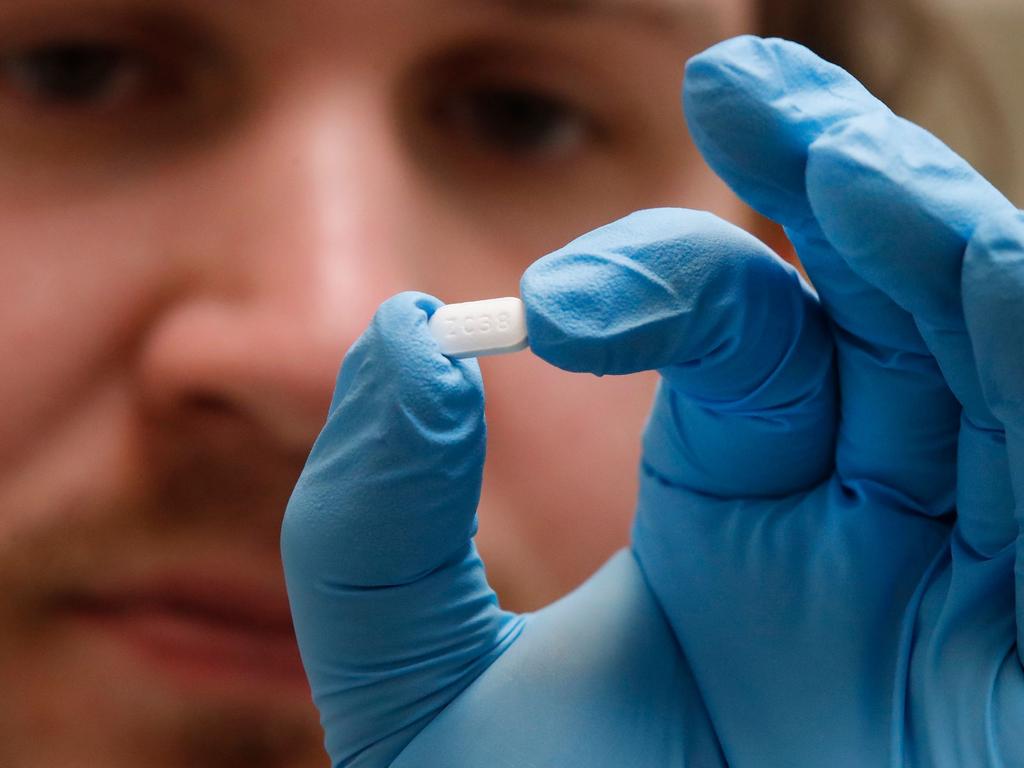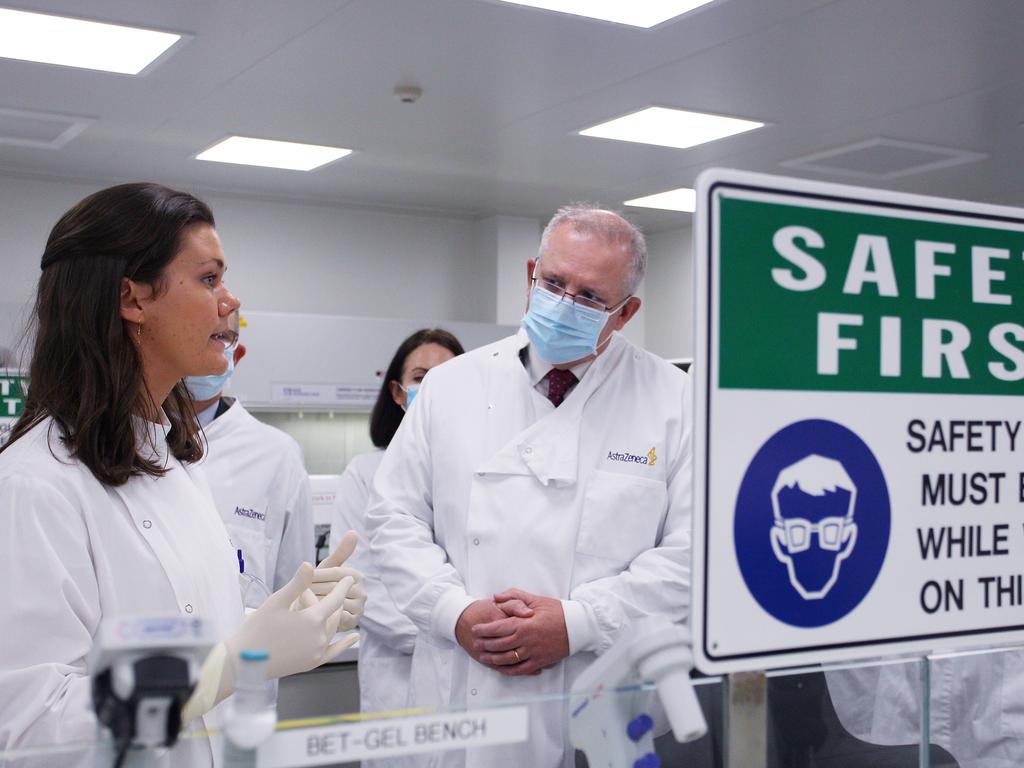Hydroxychloroquine a lifesaver for some while others see poison
I was flattered and even somewhat chuffed to see it took no less than four experts to — try to — put me in my place.
Under the byline of the first of the four, Alastair Stewart (“Careful, medicines can also be poisons”, The Australian, August 25), the quartet upbraided me for my criticism a few weeks ago of the Therapeutic Goods Administration for defining hydroxychloroquine as a poison.
They accused me of expressing “frustration at the ‘expertism’ and ‘bureaucratic’ processes that serve to protect the community from drug harms” — both falsely characterising and entirely missing the central point of my critique.
I could hardly have expressed frustration at the TGA doing that, as it did no such thing. The TGA did not reclassify hydroxychloroquine (HCQ) on the basis on some recent evidence that it might do more harm than previously identified.
Indeed, in a sense, it did it for the exact opposite reason — that it was a vital harm-alleviating medicine. That was my objection — to the inanity of designating a drug as a poison because it was a vital medicine!
The TGA reclassified it with the specific, stated reason of preserving supply for those sick people who have been taking it to improve their health, with minimal side effects, for some 65 years.
The quartet pompously lectured that “objective clinical trial evidence of ‘substantial efficacy and safety’ on populations of patients is required to persuade the US Food and Drug Administration and our TGA to register a therapeutic”.
Yes, and exactly that has happened with HCQ; it’s been in use for 65 years and nothing, nothing has suddenly emerged to question its safety.
The quartet may or may not be familiar with the so-called “Recovery Trial” in Britain, the supposed “Gold Standard” of evidence not only against HCQ’s efficacy as a COVID-19 treatment but of the harm it could cause.
This covered over 1500 COVID-19 patients given HCQ and over 3100 given standard care (the so-called placebo group). Some 25 per cent in the placebo group died within 28 days; 26.8 per cent in the HCQ group did.
Case seemingly proved: HCQ does not work and indeed it harms and kills people.
Well, this trial — like every single one of the dozen or so trials that have ‘‘proved’’ HCQ does not work — did not include zinc in the treatment protocol.
Why is zinc important, you, and my quartet, might ask?
As I can only judge from their commentary where they mentioned it only once and that was in quoting me, they are seemingly unaware of the established role of zinc as an extremely potent anti-viral, but only, crucially, within cells, and that a zinc ionophore like HCQ (and Ivermectin) is needed to get the zinc into the cell.
I could refer my quartet to any number of experts that could explain all this, including Yale School of Public Health professor Harvey Risch. But the ‘‘Medcram 34’’ video does it well and should be easily understood even by experts.
That was one, big, problem, with the Recovery Trial. There’s a clue to another — the fatality rate of around one in four.
These were very sick, mostly old people, at late stages of the disease with multiple morbidities beyond just the virus and where even an effective anti-viral would be like a garden hose fighting a raging bushfire.
While the Recovery Trial was useless in determining the efficacy of HCQ plus zinc, it did have one entirely unheralded result — re-endorsing the long-established safety of HCQ.
HCQ can in very, very rare cases cause fatal heart arrhythmias, but only in very, very prolonged use — not exactly how it would be used to treat COVID-19. My quartet specifically cited this risk.
Well, in the trial patients were dosed with up to 6-12 times the recommended safe maximum HCQ dose — surely the greatest test we have ever seen of any risk of HCQ-caused heart arrhythmias.
And the result — and I quote from the abstract as reported in medRxiv: “There was no excess of new major cardiac arrhythmia.”
Uncited by my quartet are the more than 50 trials around the world which show HCQ has been beneficial in treatment of COVID-19, along with the clinical evidence from dozens of countries like Qatar, Switzerland, France and the US, of HCQ (and Ivermectin) plus zinc actually saving real lives.
They made no reference to the clinical experience in Switzerland — hardly a centre of quack science — that I referenced in my column.
After the unrelenting tidal waves of Trump Derangement Syndrome-driven media and medical expertism attacking HCQ, the Swiss, which had been using it widely, banned its use in late May.
What happened? What’s called the “Case Fatality Ratio Index (CFRI)” for the virus rocketed — and I mean, tripled. So, just 13 days later, the Swiss revoked the ban.
What happened then? The CFRI collapsed back to its prior HCQ-using levels. Bluntly, fewer — many fewer — people died. Apparently, the drug that’s a poison down under worked to save lives in Switzerland.
Ah, but my quartet were at pains to lecture us that “all cures were poisons”, all “drugs were poisons”, and “all therapeutic drugs are incorporated into the poisons standard”.
Ah, the “poisons standard” — whose fuller title is the “Standard for the Uniform Scheduling of Medicines and Poisons, showing that a saner TGA in a saner world actually understood the difference between a ‘‘medicine’’ (common dictionary definition: a substance taken to cure an illness) and a ‘‘poison’’ (a substance capable of causing illness or death).
My quartet states that HCQ fits this definition of poison.
And yet, HCQ is actually in a TGA schedule titled “Prescription only Medicine”. In its so-called “Poisons Standard”. Only two of the 10 schedules are actually titled “Poison” and “Dangerous Poison”.






I was flattered and even somewhat chuffed to see it took no less than four experts to — try to — put me in my place.